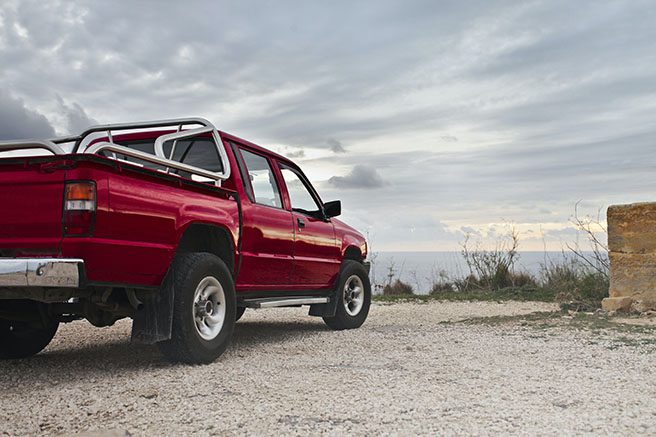The popularity of utes and vans in Australia is undeniable, but so too is the pursuit of a tax break. For many businesses and individuals, there is a belief that owning a ute rather than a car will achieve significant tax savings.
The argument is that the ute is used for ‘business’ rather than ‘private’ purposes. This might sound simple enough, but how do you make sure you don’t get the ATO offside? For example, can you legitimately make private trips in the ‘business ute’ without ruining the tax benefits you are looking to claim? New ATO guidelines shed light on this grey area.
Why is the ATO view needed?
Generally, a fringe benefits tax (“FBT”) liability arises where an employer makes a vehicle available for the private use of their employee. Different FBT rules apply for eligible vehicles that are not ‘cars’, examples being utes and vans. A full FBT exemption can apply for eligible vehicles where the use of that vehicle is limited to work-related travel and other private use that is ‘minor, infrequent and irregular’.
While travel between an employee’s home and their place of work is generally considered private use, those trips can be treated as work-related travel for the purpose of the FBT exemption. Hence, the crucial part in obtaining the exemption is making sure the other private trips are ‘minor, infrequent and irregular’. This is a subjective assessment, so it is difficult to know how many private trips are too many (in the ATO’s eyes).
There has previously been limited guidance on this issue. However, the ATO have recently issued draft guidelines on when they will undertake compliance activities (such as reviews or audits) on eligibility for the FBT exemption for utes and vans. These guidelines are discussed in more detail below.
What are the guidelines?
Provided the following criteria are satisfied, the ATO will accept that an employee’s private use of their employer’s ute or van was minor, infrequent and irregular. The criteria are:
- you provide an eligible vehicle to a current employee;
- the vehicle is provided to the employee to perform their work duties;
- you take all reasonable steps to limit private use of the vehicle and have measures in place to monitor such use;
- the vehicle has no non-business accessories;
- the vehicle had a GST-inclusive value less than the luxury car tax threshold (currently $65,094) at the time the vehicle was acquired;
- the vehicle is not provided as part of a salary packaging arrangement and the employee cannot elect to receive additional remuneration in lieu of the use of the vehicle; and
- your employee uses the vehicle to travel:
- between their home and their place of work and any diversion adds no more than two kilometres to the ordinary length of that trip;
- no more than 750 kilometres in total for each FBT year for multiple journeys taken for a wholly private purpose; and
- no single, return journey for a wholly private purpose exceeds 200 kilometres.
Based on the ATO guidelines, an employee who stops off on their way to work to pick up a newspaper may be able to treat that as a mere diversion on their home to work travel (and hence a ‘business trip’ for the purpose of the FBT exemption). By comparison, travelling with a passenger in your vehicle (for example you drop your kids off at school on your way to work) would be considered a private trip, even if dropping the passenger off involves a detour of less than two kilometres.
The guidelines also consider taking the vehicle to private appointments, such as sport. If an employee drives the work ute to footy training after work and then home after training, the ATO considers both those trips private, and not a mere diversion on the employee’s way home from work. Accordingly, such trips, along with all other private trips, would need to total less than 750kms in an FBT year for the exemption to apply.
Are the guidelines a good thing?
At first glance, the guidelines appear useful to many employers as they provide more of a framework to support genuine claims that private use of the vehicle is indeed ‘minor, infrequent and irregular’. However, for some employers, these guidelines will be highlight problems such as where they don’t have the appropriate policies, records and steps in place to meet the criteria, or it is clear that employees’ private use would be well outside the guidelines.
From the ATO perspective, these guidelines provide their case officers with more of a checklist to be able to consider the private use of vehicles. This is likely to lead to an increase in ATO reviews and audits in the FBT space and potentially more disputes with taxpayers.
While the guidelines are generally welcomed, some of the traps which employers could fall into, include:
- If you’ve agreed to include a ute or van as part of an employee’s salary package, be careful whether that results in the guidelines not applying, especially if the employee could substitute other forms of remuneration for the vehicle;
- Social media might be a fun way to share photos of you out and about on family trips in the ute, but those photos can also be a great way for the ATO to build a case that your vehicle has significant private use (and therefore deny the FBT exemption);
- If you provide the vehicle to an employee who has no other vehicles (for example a single person with no other vehicle) then be prepared for a fight with the ATO to show how that employee would live their day-to-day private life whilst racking up less than 750kms of private use each year; and
- The guidelines currently only consider FBT (i.e. an employer providing the ute to an employee) and not other arrangements where a ute or van is used (such as a sole trader, or an employee who uses his own ute for work purposes). While it may seem reasonable to assume that the finalised guidelines will apply to these other arrangements, it is not currently the case and hence a more robust system of record keeping still needs to be maintained for those arrangements.
What action should I take?
The guidelines are currently only in draft form, but when finalised they are proposed to apply for the 2018 and later FBT years. Accordingly, we recommend that employers begin to look at their existing policies and approach to private use of utes and vans and see how it fits with the draft guidelines. Once the guidelines are finalised, businesses should ensure their approach is robust and within the ATO guidelines if they wish to have a more relaxed level of record keeping and less likelihood of a fight with the ATO.
We can assist in reviewing your existing motor vehicle private use policies and help to ensure your arrangements are compliant with the ATO requirements. Contact your local William Buck advisor for further details.
Disclaimer: The contents of this article are in the nature of general comments only, and are not to be used, relied or acted upon with seeking further professional advice. William Buck accepts no liability for errors or omissions, or for any loss or damage suffered as a result of any person acting without such advice. Liability limited by a scheme approved under Professional Standards Legislation.

































